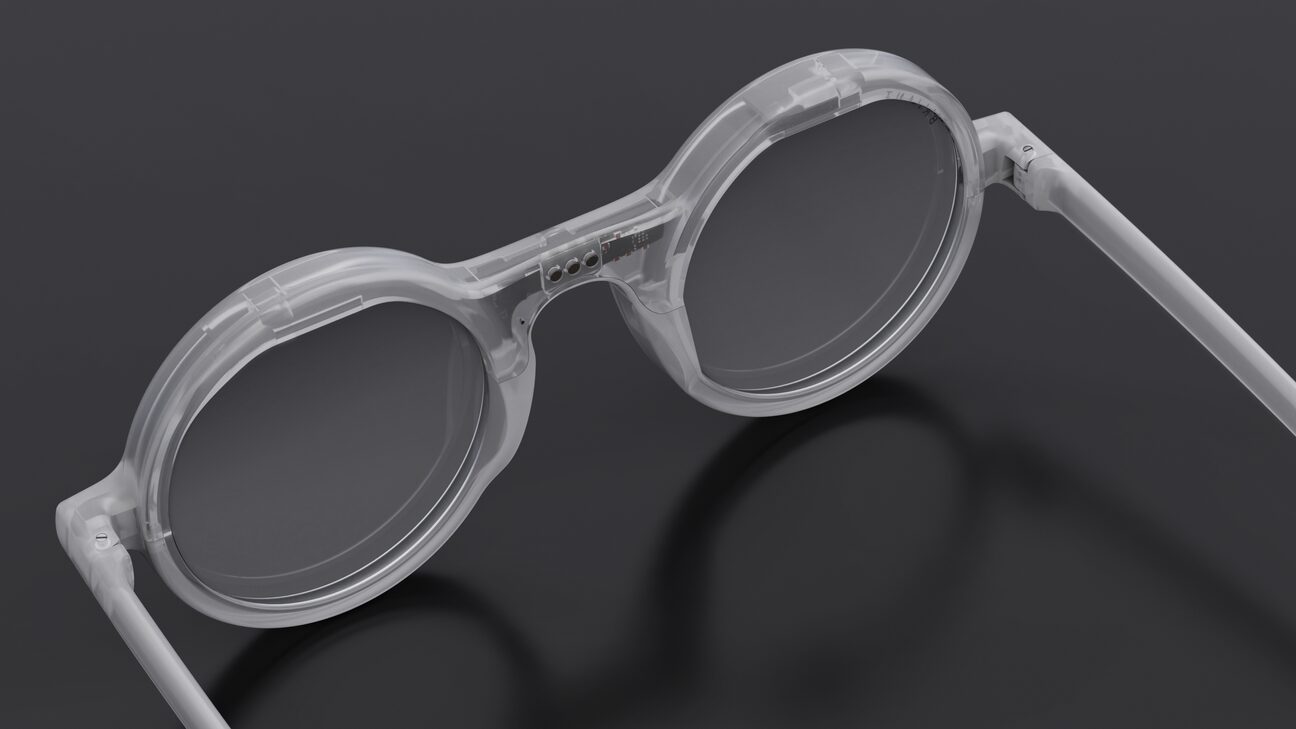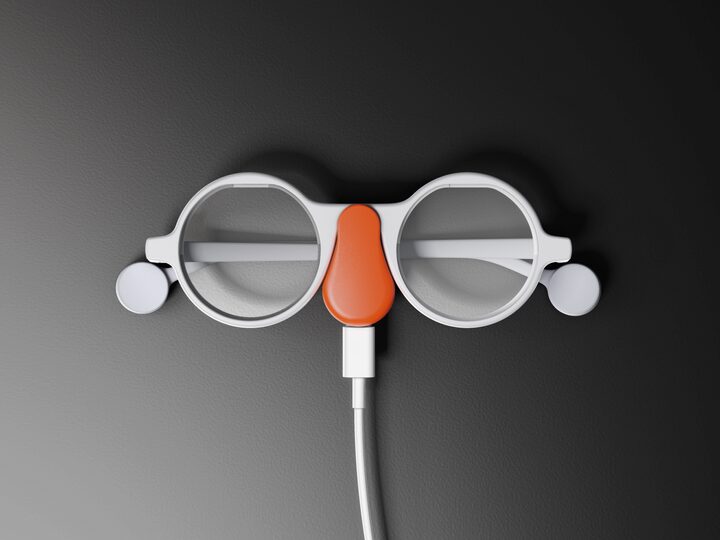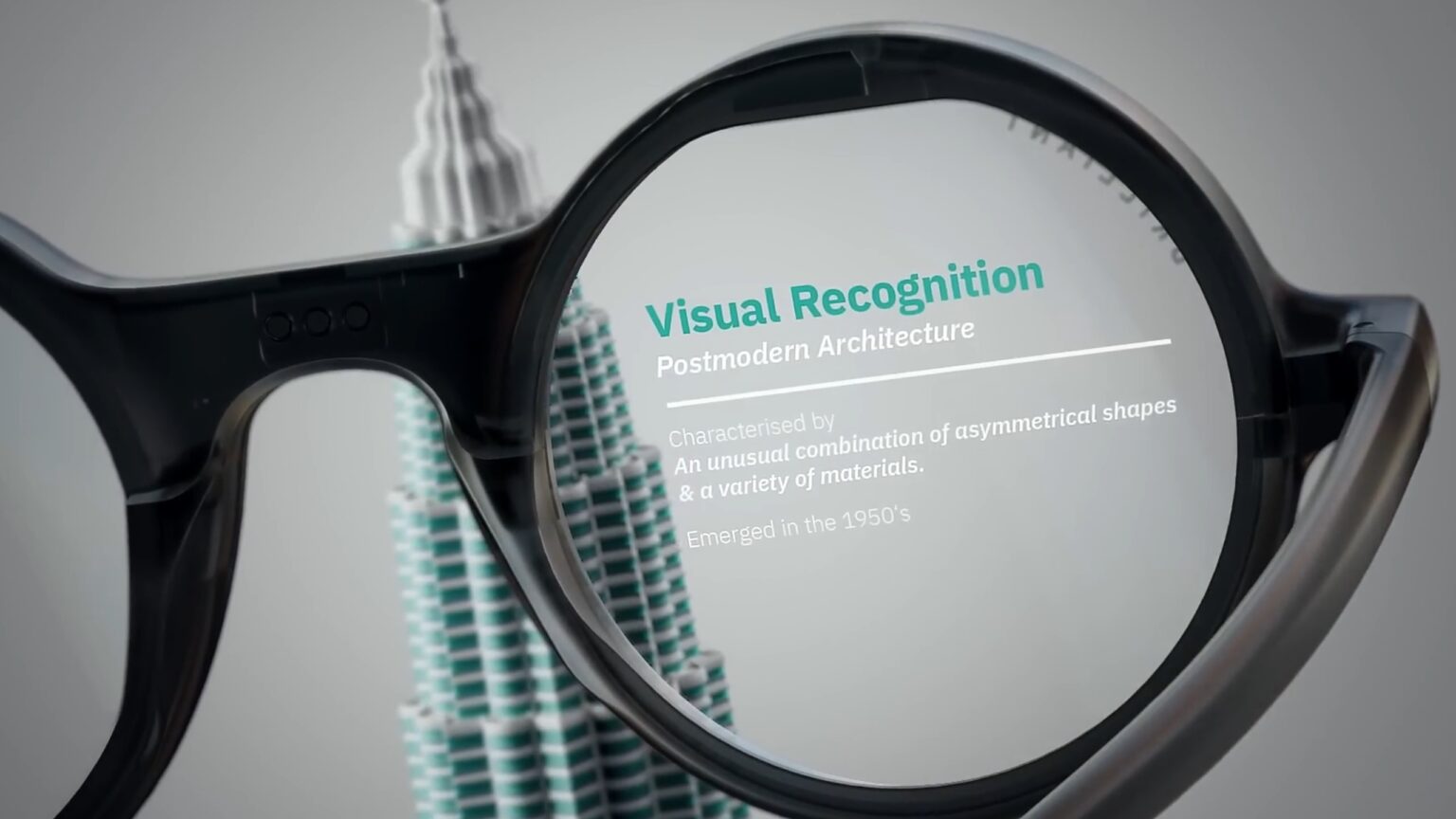Open-source eyewear startup Brilliant Labs revealed its new smart glasses, called Frame. The glasses use a variety of AI features to help wearers get translations, web searches, and visual analysis.
Singapore-based Brilliant Labs claims that Frame gives users multimodal “AI superpowers.” According to the firm, the spherical glasses can help people identify objects, places, and other areas of interest and get details about them—all as they walk around.
Also read: Fans Can Be ‘Rashford’ in the Metaverse: Man Utd Eye AR Player Bodycams
What can you do with Frame?
In a video posted on YouTube, Brilliant Labs shows some of the things that Frame can do. You can speak to the AI glasses and ask them to identify a building in sight, translate a signpost written in Japanese, and give nutritional information on food.
Users can also query the smart spectacles to search the web for a pair of sneakers and their price and to generate an image. The results will appear as an overlay that shows up directly on the lens.
Frame is connected to an AI assistant from Brilliant Labs known as Noa. The app leverages OpenAI’s GPT4 tech to process visuals [it can take pictures and record video] and Whisper AI for language and audio translations, and even to summarize book pages.
To search the internet, Frame uses Perplexity AI. As you wear the glasses, you can ask Perplexity’s AI-powered search engine questions and get answers, the company says.
Brilliant Labs CEO Bobak Tavangar said Noa “learns and adapts to both the user and the tasks it receives,” according to VentureBeat. This way, the AI is able to tailor individual experiences based on its understanding of user search history without breaking privacy.
People can download the app for their iOS or Android devices and pair it with Frame. There is no subscription required to use Noa at the moment, Brilliant Labs says, but free queries have a daily limit. In the future, the firm is planning to offer Noa AI for a fee while people can continue to use the hardware with other apps for free.
“Frame offers a new paradigm in the way humans interface with the digital world and with each other,” said Tavangar, a former Apple employee.
“Our hope is that Frame enables people to connect with each other in entirely new ways and opens up new experiences in everyday life, the workplace, classroom, and more. This is the unique promise of bringing generative AI in front of the human eye.”

Lightweight spectacles
Frame costs $349 and comes in three colors: black, gray, or clear. A prescription version is available for up to $448, the startup said. Brilliant Labs started accepting preorders for Frame on Feb. 8 and will begin shipments in mid-April.
The open-source firm has so far raised $6 million to build next-generation hardware. It is backed by the likes of Adam Cheyer, co-founder of Siri, Oculus co-founder Brendan Iribe, Pebble founder Eric Migicovosky, and others.
In the past, Brilliant Labs unveiled Monocle, a device that relies on augmented reality. Monocle can be attached to Frame or other glasses, but the company now appears set to compete with Meta’s $299 Ray Ban glasses and emerging AI wearables and hardware like Humane’s Ai Pin and the Rabbit’s R1.
According to Brilliant Labs, the Frame glasses weigh just 39 grams and feature a 640 x 400 pixel color micro OLED that “projects light through a prism in front of users’ eyes,” The Verge reports.
The glasses are also rechargeable, thanks to an orange clip called Mister Power that you attach to the frame’s bridge and charge using the USB port at the bottom of the clip. A fully charged Frame battery will last all day, the company stated.

Frame offers a 20-degree diagonal field of view, making the glasses not so useful for things like AR or mixed reality. Users can still use the glasses for such purposes, but they are likely to see stuff in a tiny box. By comparison, Xreal’s Air 2 Ultra offers 52 degrees.
The glasses also feature a 1280 x 720 camera and a microphone and are based on a custom operating system called Lua, which is “fully open source with very few dependencies.”









 and then
and then